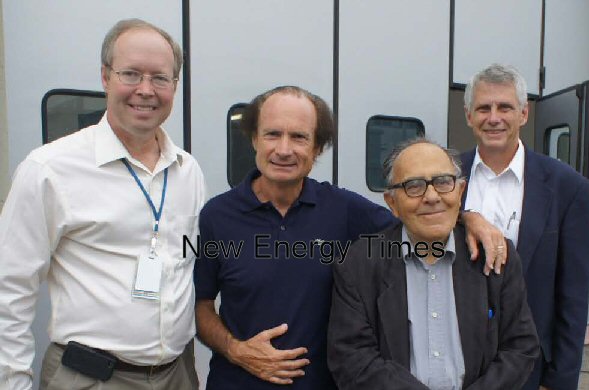University of Bologna Terminates Relationship With Rossi
Andrea Rossi, an Italian man who claims to have invented a practical low-energy nuclear reaction device, will not have his device tested and evaluated by the University of Bologna.
Last summer, Rossi said he had started a research contract with the university to allow its researchers to study his “Energy Catalyzer.” But that didn’t happen.
Today, Dario Braga, director of scientific research at the university, told New Energy Times that the university waited long enough. It terminated the contract because Rossi did not fulfill his agreement to make the first progress payment, Braga said.
“The contract ended on January 15 and has been canceled by the university,” Braga said. “Therefore, there is no further relationship between the university and Rossi or his company.”
In October, Rossi claimed that he sold a device to an unidentified customer, but there is no factual evidence to support this. Rossi’s failure to make a payment to the university casts doubt on the sale.
Throughout 2011, Rossi devised secretive and increasingly elaborate “E-Cats” that he claimed were producing high levels – in fact commercially viable levels – of excess heat. He arranged several press conferences and paid for invited foreign professors to visit.
But the tests were never long enough, the data was always poor and the devices were always too complicated to allow a definitive conclusion in Rossi’s favor. Regardless, Rossi captured the hearts and goodwill of fans and believers worldwide.
Technology journalist Mats Lewan reported in Ny Teknik on March 10, 2011, that Rossi “is now paying 500,000 Euros to the Physics Department of Bologna University, following a new agreement.”
But Rossi apparently lied to his fans last March about the university contract. No contract was signed in March. Paolo Capiluppi, the head of the University of Bologna Physics Department, signed the contract at the end of May, and Rossi signed it on June 21, 2011.
Hanno Essén, a lecturer at the Swedish Royal Institute of Technology who was paid by Rossi to come to Bologna to evaluate his device, told New Energy Times on July 15, 2011, how he thought Rossi was planning to pay for the university research.
“According to what I heard,” Essén said, “the University of Bologna contract will become active in late October, because then Rossi will get money from Athens, but this is only speculation. According to the schedule I heard, nothing will happen until October.”
But the Greek connection, Defkalion, fizzled long before October. Defkalion failed to make its first scheduled payment to Rossi on Aug. 1. The following week, Rossi made a connection with an American investor, John Preston of Quantum Energy Technologies, but that fizzled, too.
Rossi met with Preston Aug. 2-4 in Boston and drew up an agreement and defined test parameters. On Rossi’s invitation, Preston and his colleagues went to see and test Rossi’s device on Sept. 5 and 6. But it didn’t work, and they left.
On Oct. 7, a month after Preston walked away, Ny Teknik reported that Rossi canceled the agreement with Preston.
“We had a preliminary agreement with a very important party in the U.S.,” Rossi said, “but when we received the final draft, it included conditions that our lawyers said that we should not accept.”

September 2011 photo outside Rossi’s showroom. Left to right: unidentified, Andrea Rossi, Sergio Focardi, John Preston. Photo courtesy Jim Dunn.

